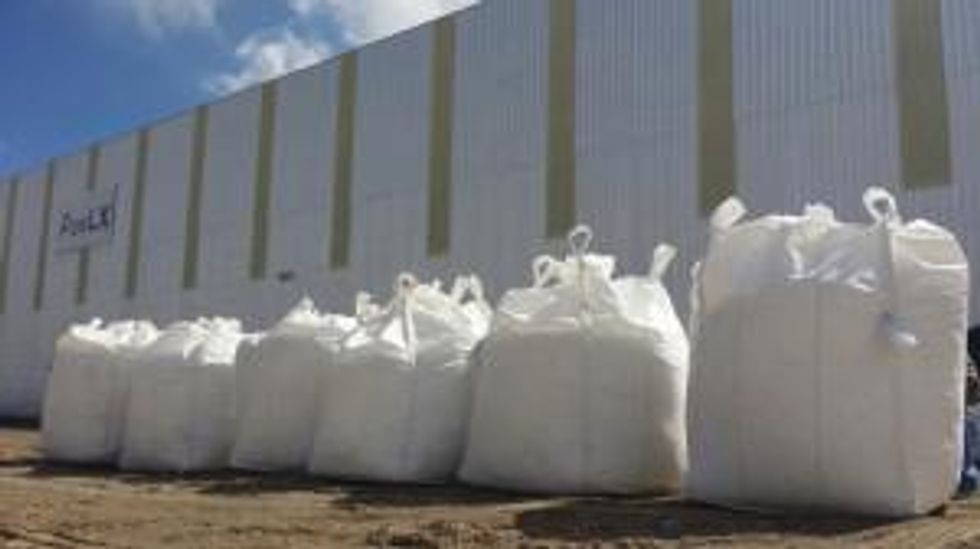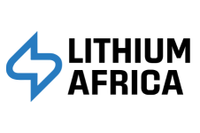Lithium Americas Up 16 Percent on Positive POSCO Plant Performance
POSCO’s lithium extraction demonstration plant at Lithium Americas’ Cauchari-Olaroz lithium project is already exceeding expectations. On Tuesday, Lithium Americas announced that the plant has produced over 6 tonnes of lithium compound since its inauguration on December 22, 2014.
It’s only been a month since POSCO’s lithium extraction demonstration plant was inaugurated at Lithium Americas’ (TSX:LAC) Cauchari-Olaroz lithium project in Argentina, but the plant is already exceeding expectations.
On Tuesday, Lithium Americas announced that the plant has produced over 6 tonnes of lithium compound since its inauguration on December 22, 2014. POSCO has said the plant is “achieving or exceeding all initial performance targets” as it’s been operating round the clock on a continuous 24-hour production schedule.
As Jon Hykawy, president and director of Stormcrow Capital noted, pilot plants that don’t operate continuously won’t be ready to be commercially scaled, so the fact that POSCO’s plant is doing so is “a very good sign.”
The Korean steelmaker has been working on its proprietary lithium extraction technology for years, but the demonstration plant at Cauchari-Olaroz is important in that it represents the final stage in a commercialization plan for the technology.
According to POSCO, its method allows for much quicker processing compared to traditional brine evaporation technologies. Recovery rates are also said to be higher, meaning that a brine project would require fewer producing wells and would garner a lower capital cost.
To be sure, the process has been said to take as little as eight hours, and although it could take up to a month, that’s still a big improvement from the 12- to 18-month process used traditionally. And looking at how the plant has performed so far, the technology certainly looks to be living up to that claim.
Certainly, the market was receptive to the news — shares of Lithium Americas were up as much as 28 percent on Tuesday, at $0.31, and trading volumes were almost nine times the daily average. At close of day, the company was up 16 percent, trading at $0.29.
Hykawy agrees that POSCO’s technology should have the advantages described in its patents, and noted that a faster recovery process would be “great for battery makers, as there would be much less risk of disruption to a delivery schedule due to inclement weather or the like.” However, while the process is expected to cut down on capital expenditures, Hykawy said that the operating cost is also worth considering.
“[T]he point that has to be proven is that this process will have the same or lower opex than the traditional solar evaporation approach,” he said, adding, “if the opex cost is higher than most, that doesn’t preclude using this technology and making money doing it, but it is always much nicer to be in the bottom half of the cost curve.”
Other analysts are positive on the possibility for a speedier recovery process as well. Simon Moores of Benchmark Mineral Intelligence pointed out that SQM (NYSE:SQM) “completely changed the lithium game” when it commercialized recovery from brines in the 90s, and suggested that the industry will be closely watching as new methods are developed “as they hold the potential to disrupt today’s mass production standard.” However, he also noted that it’s important to keep in mind how viable any new process is on a large scale.
“[I]t’s one thing to develop this process on a small scale and another to scale it up to global commercialization,” he said.
To be sure, Hykawy sees the POSCO plant and its partnership with Lithium Americas as something that “could be a very interesting project to watch.”
“Lithium is doing extremely well as a commodity,” he said, “and if Lithium Americas can use this technology to make product they might be able to not only reduce their required capital requirement, but they could advance their own production schedule to the point of competing with others that require lengthy solar evaporation periods before lithium is available for sale.”
The lithium compound will be sent to Korea for final processing and packaging before being delivered to end users for testing. The plant will continue to operate for several more weeks, after which Lithium Americas expects to begin commercial-stage negotiations with POSCO. Currently, the cooperation agreement between Lithium Americas and POSCO covers pilot plant operations only, but the agreement also provides for an exclusivity period for negotiations.
The process is also applicable to potash, and a demonstration plant for that purpose is being constructed in Argentina.
Securities Disclosure: I, Teresa Matich, hold no direct investment interest in any company mentioned in this article.





